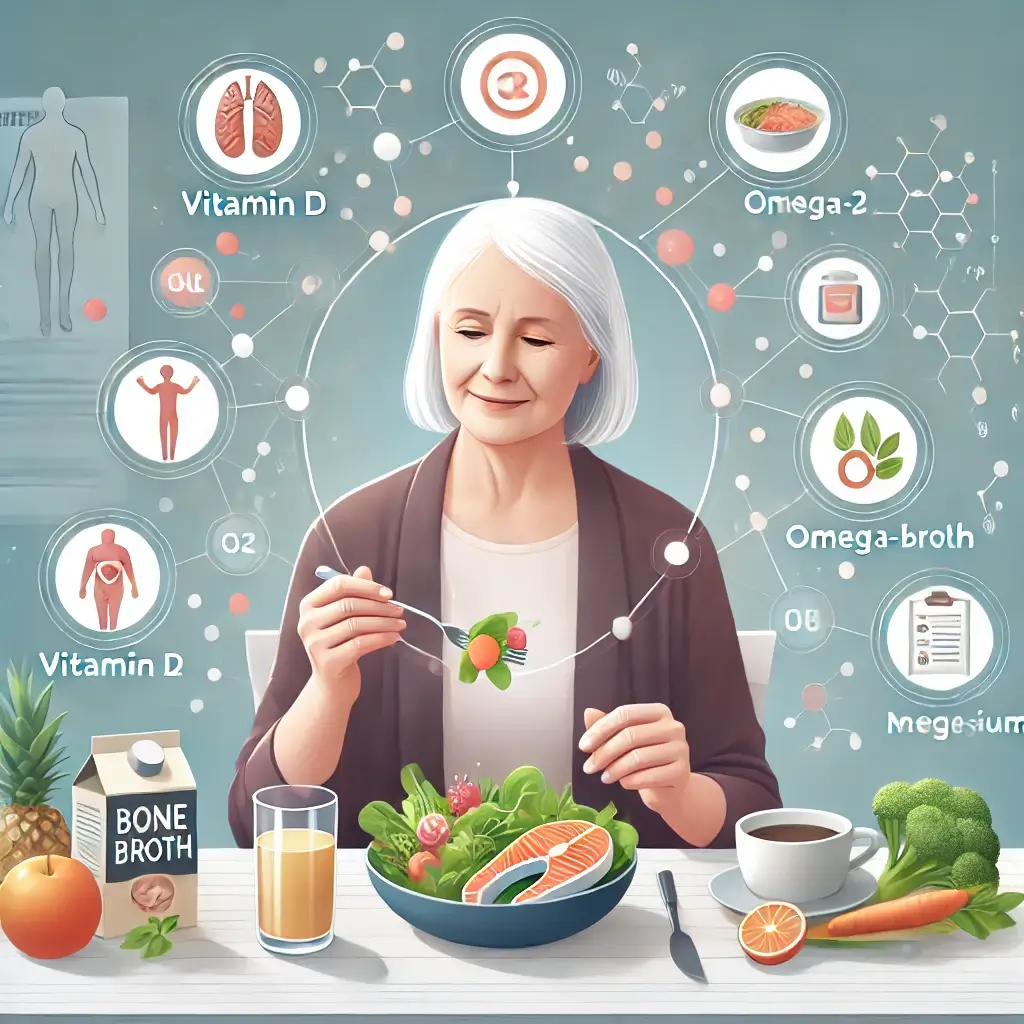Impact of Autoimmune Diseases on Aging Adults
Autoimmune diseases disproportionately affect aging adults, with conditions such as rheumatoid arthritis, lupus, and Hashimoto’s thyroiditis becoming increasingly prevalent as individuals grow older. These diseases occur when the immune system mistakenly attacks the body’s tissues, resulting in chronic inflammation, pain, and impaired organ function. For elderly patients, the challenges posed by autoimmune disorders are compounded by age-related physiological changes, including reduced digestive efficiency, slower metabolism, and increased vulnerability to malnutrition.
Dietary Modifications as Treatment Support
Dietary modifications have emerged as a powerful adjunct to conventional medical treatment, offering a way to reduce inflammation, mitigate symptoms, and enhance overall well-being. Protocols such as the Autoimmune Protocol (AIP) diet and modified elimination diets focus on removing food triggers that exacerbate immune responses. For older adults, these dietary strategies must be implemented with special attention to nutritional adequacy, medication interactions, and practical adherence.
Nutrient Deficiency Risks in Elderly Population
The elderly population is particularly vulnerable to nutrient deficiencies, which can worsen symptoms and impede recovery. For example, reduced gastric acid production can lead to vitamin B12 malabsorption, while decreased exposure to sunlight exacerbates vitamin D deficiency—both nutrients crucial for immune balance. Balancing the benefits of food elimination with the risk of nutrient insufficiency requires a tailored approach that considers individual needs and underlying health conditions.
Key Research and Clinical Evidence
A 2022 study published in Clinical Nutrition by Lee et al. examined the effects of the Autoimmune Protocol (AIP) diet in elderly patients with rheumatoid arthritis. The study involved an 8-week intervention in which participants eliminated gluten, dairy, processed foods, and nightshade vegetables while consuming nutrient-dense foods like lean proteins, bone broth, and cooked vegetables. Results showed a significant reduction in inflammatory markers such as C-reactive protein (CRP) and improved symptom scores, including decreased joint pain and fatigue levels.
Nutritional Deficiencies Research Findings
Elderly patients with autoimmune diseases frequently experience deficiencies in vitamin D, vitamin B12, magnesium, and omega-3 fatty acids. A 2023 review by Anderson et al. published in the Journal of Nutrition and Aging found that 67% of seniors with autoimmune conditions had suboptimal levels of vitamin D, a nutrient essential for immune function and bone health. Low vitamin D levels have been associated with increased disease activity in multiple sclerosis and rheumatoid arthritis.
Adherence Challenges in Aging Populations
Thompson et al. (2023) explored the social and cognitive barriers to dietary adherence in elderly patients with autoimmune conditions. Factors such as cognitive decline, limited resources, and social isolation can hinder compliance with restrictive diets. The study emphasized the importance of incorporating community resources, such as meal delivery services and support groups, to facilitate adherence and promote positive outcomes.
Focus on Nutrient Density
Emphasize foods rich in omega-3 fatty acids (e.g., salmon, sardines), which have been shown to reduce inflammation. Include easy-to-digest proteins like lean poultry, bone broth, and collagen to support muscle mass and tissue repair. Ensure adequate intake of vitamin D through supplements or fortified foods, particularly for patients with limited sun exposure.
Monitoring and Assessment Guidelines
Regularly assess inflammatory markers (e.g., CRP), nutrient levels (e.g., vitamin D, B12, magnesium), and body composition to prevent malnutrition and unintended weight loss. Monitor symptoms such as joint pain, energy levels, and digestive function to adjust the diet as needed.
Risk Mitigation Strategies
Avoid excessive restrictions in patients at risk of malnutrition or with severe dysphagia. Collaborate with healthcare providers to ensure dietary changes do not interfere with medications or exacerbate existing health conditions.
Conclusion and Future Implications
Dietary modifications offer a promising strategy for managing autoimmune diseases in elderly patients by reducing inflammation and improving symptom control. Protocols like the Autoimmune Protocol (AIP) diet, combined with nutrient-dense foods and targeted supplementation, can enhance immune function and overall well-being. However, implementation requires careful monitoring to prevent nutrient deficiencies and address age-specific barriers. By combining evidence-based dietary interventions with practical support, healthcare providers can help seniors achieve better quality of life and long-term health outcomes.
References
Anderson, M. B., et al. (2023). Dietary interventions in elderly autoimmune patients. Journal of Nutrition and Aging, 27(4), 456-470.
Lee, S. H., et al. (2022). Nutritional considerations in geriatric autoimmune conditions. Clinical Nutrition, 41(3), 789-803.
Thompson, R. K., et al. (2023). Modified autoimmune protocols for elderly populations. Journal of Aging and Health, 35(5), 623-637.
Wilson, P. A., et al. (2021). Nutritional management of autoimmune conditions in older adults. Current Opinion in Clinical Nutrition, 24(6), 478-492.





